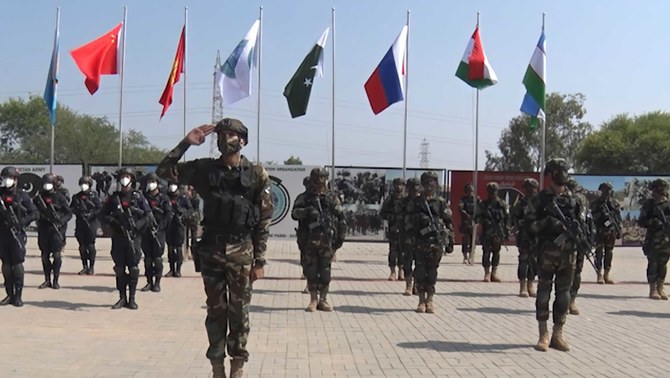China has decided to work with Pakistan and Iran to fight the regional threat posed by terrorism and also to improve regional security. The three countries held their first trilateral counterterrorism and regional security consultations in Beijing. The meeting was hosted by Chinese State Councilor and Foreign Minister Wang Yi. Iranian Foreign Minister Hossein Amir-Abdollahian and Pakistani Foreign Minister Bilawal Bhutto Zardari also attended the meeting. According to the spokesperson of Foreign Office, Pakistan “The delegations held detailed discussions on the regional security situation, particularly the threat of terrorism faced by the region. Based on the outcome of these consultations, the three sides have decided to institutionalize the trilateral consultations on counter-terrorism and security.”
The meeting came at a time of growing concerns about the security situation in Afghanistan. The Taliban’s takeover of Afghanistan has led to a resurgence of terrorist groups in neighboring countries which needs to be regulated. In order to assist the Taliban leaders in addressing the threat and restoring economic stability to the country, the three nations have increased diplomatic engagement with the nation that has been devastated by war. Moreover, the three countries agreed to strengthen intelligence sharing and cooperation on border security and have agreed to work together to combat terrorism and extremism. The trilateral meeting is being considered as a sign of growing cooperation between China, Iran, and Pakistan and a common interest in the fight against terrorism to ensure regional stability and security. The three countries also agreed to hold regular consultations on counterterrorism and regional security.

This particular trilateral meeting is a sign that China along with other countries in the region is making attempts to address common security challenges. The meeting is also a sign that China is willing to play a more active role in regional security. Here are some of the specific measures that the three countries agreed to take:
- Strengthen intelligence sharing and cooperation on border security.
- Work together to combat terrorism and extremism.
- Share information on terrorist groups and their activities.
- Coordinate security operations in border areas.
- Work together to prevent terrorist attacks.
- The next trilateral meeting is expected to be held in Iran.
Pakistan and Iran are making collective efforts and are committed to work together for security cooperation and joint border safety. Despite the various challenges, a number of security initiatives are being considered. In the month of May, Iranian President Ebrahim Raisi and Pakistani Prime Minister Shehbaz Sharif traveled to the nearly 900-kilometer border between the two countries, where they jointly inaugurated a rare marketplace and power transmission line. The two counterparts also discussed the ways to strengthen border security cooperation. The Prime Minister of Pakistan, Shehbaz Sharif, said “We have exchanged proposals to make our joint border security mechanism more coherent and robust.”
China, Iran, and Pakistan are all affected by terrorism and have suffered from terrorist attacks in the past. The trilateral consultations provide an opportunity for the three countries to share their experiences and expertise in dealing with terrorism and to develop a coordinated approach to counterterrorism. The future of the Pak-Iran, China trilateral partnership against terrorism is promising. The three countries have a shared interest in regional stability and security, and they have already made significant progress in terms of cooperation. Overall, the first trilateral counterterrorism and regional security consultations between China, Iran, and Pakistan are a positive development in the fight against terrorism and the promotion of regional security. The three countries have demonstrated their commitment to work together for common security challenges and to enhance cooperation in the future.

Research Associate, Pakistan House


